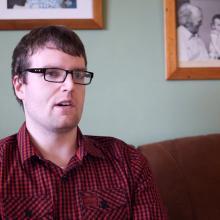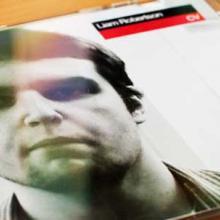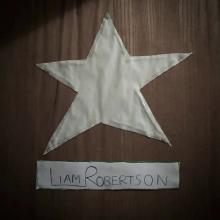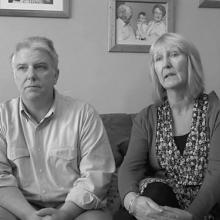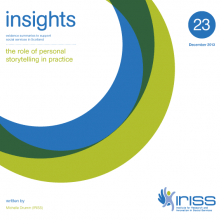"People with disabilities have all sort of skills and abilities and that's what needs to be promoted. We need to get beyond seeing the disability, and I think video's a really good way of doing it."
David Lettice is a social worker with East Renfrewshire Council. He became involved with Liam, a 20 year old man with autism, when his case was transferred from the transitions team to the integrated learning disability team, where David works.
David talks about the role of social services in supporting people with disabilities so that they can be as independent as possible, and how the various agencies co-ordinate with each another.
He goes on to talk about the idea of creating a 'video CV' for Liam to help him pursue his aspiration to work in the theatre.
Liam's case illustrates personalisation in practice and value of digital storytelling:
Related
Video interview with David Lettice, Social Worker, East Renfrewshire council,12th March2012
DL I suppose Social Services have been involved with Liam for most of his life, and it would have been Children's Services that were involved before he became a young adult, when the Transitions Team of East Renfrewshire Council were involved in planning out what Liam's immediate post-school options were. And they organised for Liam that he went to Cardonald College on a two-year course. Liam was still on that two-year course when I first became involved and the case got transferred from the Transitions Team across to the Integrated Learning Disability Team, and that's where I work.
Question: What's the primary role of social services?
DL ... to support the young person with the disability and their families with some of the issues that people with disabilities face in society, whether that be access to schooling, whether it be access to benefits, whether it be post-school opportunities. So I mean that's the overall intention - it's to support the person to be as independent as they possibly can be and to support their families to support them.
Question: What other agencies were involved?
DL I mean for Liam it was primarily Social Work, but also the likes of Cardonald College were involved. He had a Local Area Coordinators, there is a Local Area Coordination Team in East Renfrewshire Council who are there to support people with disabilities, to plan their life choices. So he had been involved with a Local Area Coordinator. If Liam had particular health needs, then because he had been referred to a Learning Disability Team, I would have liaised with my colleagues in Health, who are part of the Community Health & Care Partnership in East Renfrewshire, on those specific areas. But for Liam, there wasn't really any health issues, so it was primarily Social Work, local Area Coordination and the colleges.
Question: Key factors in positive outcomes for Liam
DL Liam went on a Preparation for Work course at Cardonald College, and that was coming to an end when I first got involved. At that point in time it was quite clear that this was a young man who had dreams and aspirations, and it was about supporting Liam and his family to pursue as much as was realistic and as much as was possible, him being able to follow those dreams and aspirations. I was very fortunate at the time that I had just become a ... I had just enrolled on a practice teaching course which mean that I had a student placed with me, and I was able to use that student, Theresa Bentley, to work with Liam on looking at what his options were when his college course had finished. Now that involved all sorts of work, but Theresa went out and found Liam an opportunity in Barnardo's - she went and sourced that for him. We were also looking at other ways of promoting Liam's potential career as an actor, or as someone who wanted to work in the theatre, and we were throwing about ideas. And at that point in time we said "well what about a video CV for Liam?" And we looked for various places that could do that ... well we were actually looking for places that maybe possibly did do that. so we approached the Local Area Coordinators, and because I had had previous experience of working with Iriss, I thought I would ask Iriss's advice on people who were doing that sort of work, and out of that came the opportunity which Liam has participated in to produce a video CV. Ultimately, I would hope that that would enable Liam to present himself in the best possible light, to get him some sort of opportunity in the theatre - whether that is in acting or front of house or whatever, because that really is where the young man's passion is.
Question: how does personalisation fit with Liam's outcomes?
DL I am loathe to say 'the vast majority' - but a number of people who come through Learning Disability Services and Learning Disability Teams end up attending day services, or they end up attending college, and they go through one special needs course and then move onto the next special needs course - and they sometimes end up repeating the same sort of things, or they end up in a day centre doing the same sort of things over a number of years. I suppose what was special about Liam in this case was he very clearly had dreams and aspirations of his own. And at the same time he had parents who, whilst being reluctant, and I think they have probably expressed that, were willing to let him pursue his dreams and aspirations. And at this point in time we have a whole agenda within Social Work which is about personalising Social Work Services - and what is more personal than supporting Liam to do what he wants to do, rather than just fit him into the services that exist? So I see the work we have done with Liam very much in line with the whole personalisation agenda, which is prevalent in Social Work at this time. I think it is a good thing. But it does mean people are having to think out the box a little bit - and I didn't think ... I don't think we had to think particularly far out the box in order to get a good outcome for Liam. Now this is only part of the story though, because a video CV might help Liam when it comes ... I mean a person with a disability on paper I don't think necessarily comes across very well, because what people will see is their disability, whereas done as a video, people will quite clearly see that Liam has all sorts of skills and abilities which could be useful and could be used, and needs to be allowed to flourish.
Question: The Importance of Digital Storytelling
DL In many respects I have only borrowed an idea that I saw a number of years ago done by another organisation called 'Paradigm', who did a video CV which ... it was a video story of what this man wanted to do, and it was just so powerful and so obvious. I can't even remember what the story was, but I think he wanted to live independently and everybody was saying he couldn't, and Paradigm did the video with him and presented it to the councillors and there wasn't any argument. And I think new technology and video could be used to tell people's stories, can be used to present people ... and I mean people with disabilities have got all sorts of skills and abilities, and that is what needs to be promoted, and we need to get beyond seeing the disability - and I think video is a really good way of doing it.
